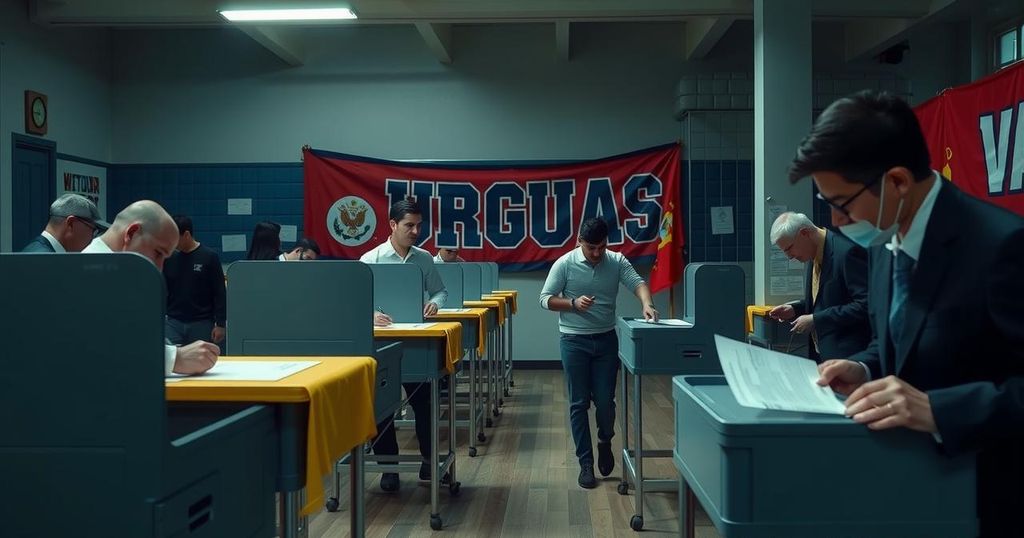Uruguay Presidential Run-off Reflects Stability in Political Landscape

Uruguay is holding a closely contested presidential run-off between centre-left candidate Yamandu Orsi and continuity conservative candidate Alvaro Delgado, with each candidate representing significant coalitions. Polls indicate a tight race with fewer than 25,000 votes potentially separating the two. The election reflects the country’s relatively low political tensions and the electorate’s inclination towards stability in governance amidst broader global trends of change.
In Uruguay, voters are participating in a closely contested presidential run-off, which marks the conclusion of a significant electoral year in the nation. The election features opposition centre-left candidate Yamandu Orsi of the Broad Front, who secured 43.9% of the first-round votes, against continuity conservative candidate Alvaro Delgado, who received 26.8% but is buoyed by the support of the Colorado Party, facilitating a coalition that represents nearly 42% of the voter base.
The political landscape in Uruguay, known for its relative stability and low political tension, contrasts sharply with the divisive dynamics observed in other South American nations. Opinion polls suggest a neck-and-neck race, with expectations that fewer than 25,000 votes may separate the leading candidates. Polling stations opened at 8 a.m. local time, with results anticipated post 7:30 p.m.
Orsi has assured voters that his policies will not drastically alter the course laid by the previous administration, while Delgado aims to leverage President Lacalle Pou’s popularity, despite the latter’s inability to seek immediate re-election due to constitutional constraints. Although neither coalition commands an absolute majority in the lower house following the recent elections, Orsi’s Broad Front did secure a majority in the Senate, enabling him to argue for a stronger mandate as he seeks to lead the government.
Both candidates are also strategizing to win over approximately 8% of first-round voters who backed smaller parties, alongside those who did not participate in the October elections. However, there has been a lack of fresh pledges in the final weeks to attract these undecided voters. Analysts indicate that, contrary to global trends of declining support for incumbent parties due to economic grievances, Uruguay’s strong economy could favor Delgado’s candidacy, despite some uncertainty surrounding the electorate’s desires for change.
Uruguay, a nation recognized for its progressive social policies and political stability, is conducting a crucial presidential run-off between two candidates representing the center-left and conservative factions. The recent elections were pivotal, reflecting a broader trend across Latin America, where shifts in political power are increasingly common. The outcome of this election could have significant implications for the country’s political landscape, especially in light of economic challenges facing voters, such as inflation and the cost of living. Amidst this backdrop, the competition between Orsi and Delgado highlights both the continuity and potential changes in Uruguay’s governance.
The presidential run-off in Uruguay signifies a notable moment in the country’s political history, with both candidates vying for leadership in a closely matched race. Voter sentiment appears to lean towards maintaining stability rather than pursuing radical changes, which could play a crucial role in determining the election’s outcome. As the polls close and results are anticipated, the election serves as a litmus test for Uruguay’s political future and the continued resilience of its democratic institutions.
Original Source: www.begadistrictnews.com.au






